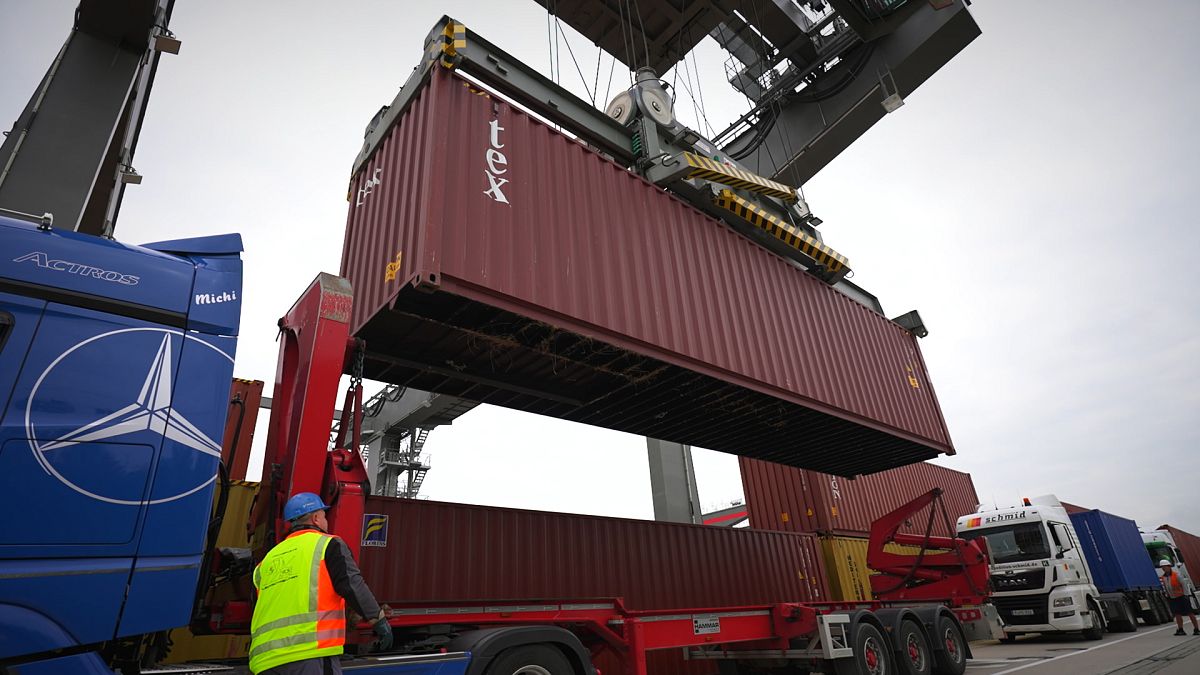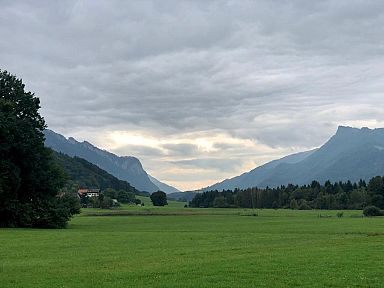The Alps are an essential transit area for freight transport. But road traffic generates noise, pollution and traffic jams in this sensitive ecosystem. A European project has a solution: the transfer of goods from lorries to trains.
The Alps have a sensitive ecosystem through which more than two million lorries pass every year. This road freight traffic causes traffic jams, noise and environmental pollution.
To counteract this, a European project called AlpInnoCT (Alpine Innovation for Combined Transport) is aiming to increase the efficiency of Combined Transport, a system where at least two types of transport are used consecutively, like rail, inland waterways or sea. Road is used as little as possible.
The shift to trains
However, 95% of trailers are not designed to be transferred from truck to train. In recent years, a solution to this problem has been found in Nikrasa platforms that are at the heart of this project. Nikrasa platforms operate 24 hours a day, 7 days a week. Albert Bastius is the chief operations officer at TX Logistik AG, an AlpInnoCT project partner. He says that their goal when they developed the NIKRASA, was to create "a platform that covers most types of trailers." According to him, around 94% of the current existing trailers on the road can be loaded with it. TX Logistik uses 100 of them.
An Alpine project
Four European Union members: Germany, Austria, Italy, Slovenia and Switzerland are taking part in AlpInnoCT. Its total budget is just over three million euros, 2.5 million of which is financed by the European Cohesion Policy.
Some of the project's key goals are to reduce storage times and to construct new terminals and manoeuvring areas.
Better for the environment
The 15 AlpInnoCT partners share the project's recommendations and guidelines. Karl Fischer, the managing director of Logistik-Kompetenz-Zentrums (LIZ) Prien, leads the project and he says the challenges of Intermodal Transport are both economic and environmental.
"In the Alpine region, we can fit 30 trailers into one train. We can therefore save 29 truck drivers with one locomotive driver. This is an important contribution to the economy. We have no more truck drivers. So we have a factor of 1 to 29! And we can reduce CO2 by 80%", he explains.
However, from a road transport perspective, managers like Thomas Eberl from Eberl Internationale Spedition GmbH & Co KG, another AlpInnoCT project partner,point out that international transport is subject to strict regulations that vary from country to country. He argues that flexibility is the most important thing that the market demands. "Our benchmark is the road, and if the railways are to follow suit, they must be flexible. Logistics and transport companies must also be flexible," he adds.
The European Union's goal is to shift 30% of road freight transport to rail or waterways by 2030 and 50% by 2050.

